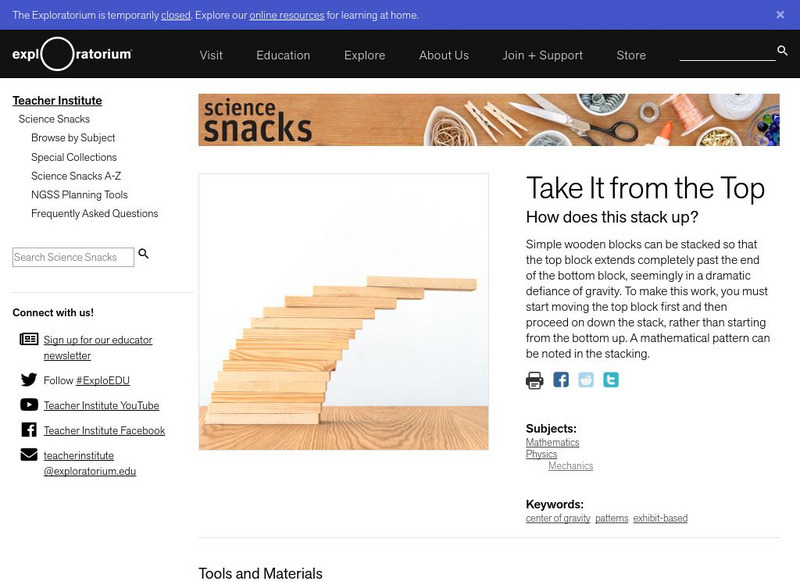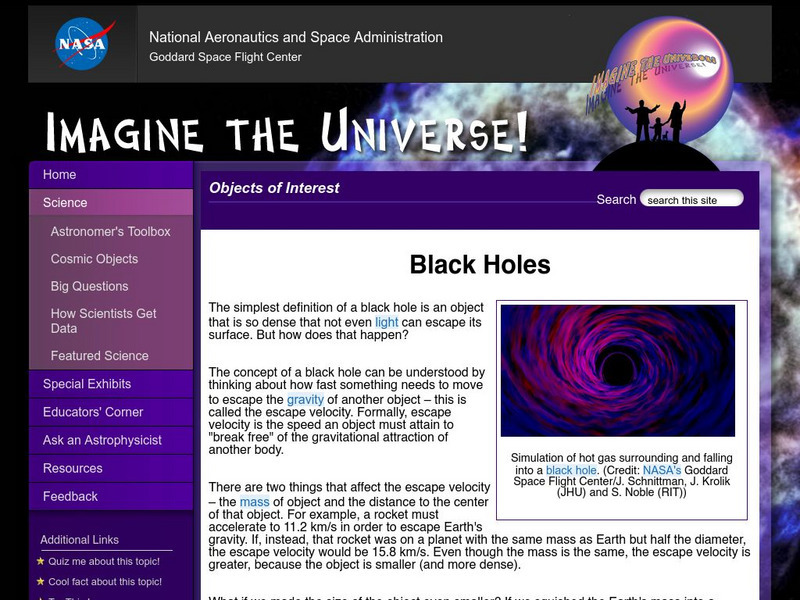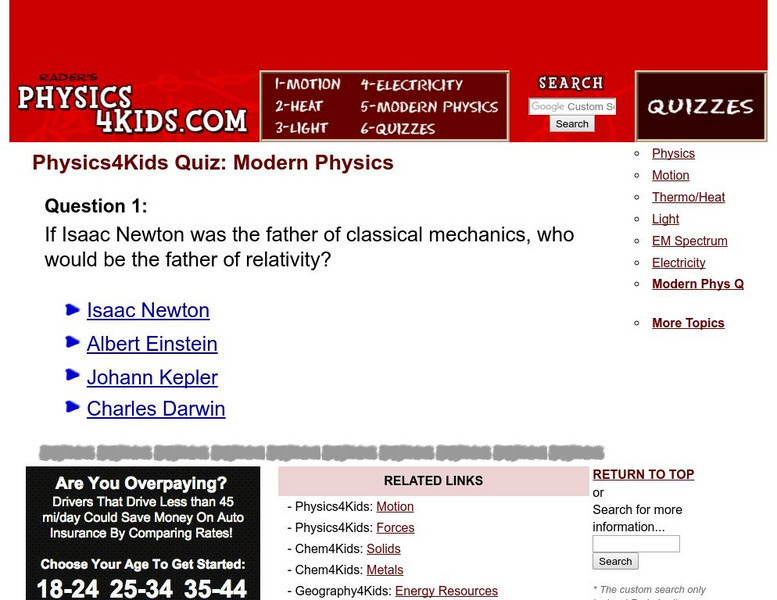Curated OER
The Planet Mars
Fifth graders gain knowledge about Mars and Earth. In this compare and contrast lesson, 5th graders use visual representations of the solar system to observe the characteristics of the planets. Students read fiction and nonfiction...
Curated OER
Jeopardy 8th Grade (Science)
There are so many topics touched upon in this Jeopardy-style science game, that it is difficult to classify! The categories include electricity, matter, ecology, earth and space, and scientific investigation. This would best be used at...
Curated OER
A Model of Three Faults
Students investigate faults. In this science lesson, students explore the many stresses and strains in the earth's layers and research the types of faults in their state.
Physics Classroom
The Physics Classroom: Static Electricity: Electric Force: Coulomb's Law
This informative tutorial on Coulomb's Law and electric force in physics features a definition as well as formulas, diagrams, and learning exercises.
Wikimedia
Wikipedia: The Black Hole
This site examines the black hole as an object in astrophysics. Delve into this comprehensive resource that covers this concept from its history, to qualitative physics, the reality of black holes, mathematical physics and more.
Exploratorium
Exploratorium: Science Snacks: Take It From the Top
Students defy gravity by stacking blocks in different ways in this exercise. Other projects are linked to this lesson as well.
NASA
Nasa: Imagine the Universe: Black Holes
Learn what black holes are and the myths that surround them.
BBC
Bbc: Gcse Bitesize: The Life Cycle of a Star
This lesson focuses on the formation and life cycle of stars. Stars form when enough dust and gas clump together because of gravitational forces. Nuclear reactions release energy to keep the star hot. Some stars grow larger over time....
Texas Education Agency
Texas Gateway: 4.8 Extended Topic: The Four Basic Forces: An Introduction
By the end of this section, you will be able to understand the four basic forces that underlie the processes in nature: gravitational, electromagnetic, weak nuclear, strong nuclear forces.
Physics4kids
Physics 4 Kids: Modern Physics Quiz
Take this ten question multiple choice quiz on modern physics
Enchanted Learning
Enchanted Learning: Earth's Oceans Tides
This site explains what tides are and the difference between Proxigean Spring Tides, spring tides, and neap tides, and how these are formed. Graphic illustrations are provided.
Science and Mathematics Initiative for Learning Enhancement (SMILE)
Smile: Potential Energy: How Is It Related to Kinetic Energy
After creating three different ramps with various heights, young scholars will release toy cars from the tops of each ramp. Based on the elementary age level, students will collect data and analyze it.
Lawrence Berkeley National Laboratory
Berkeley Lab: Four Fundamental Interactions
Discussion of the four fundamental forces of nature: strong interactions, weak interactions, gravity, and electromagnetism.













